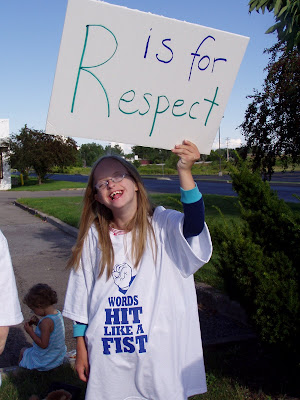

Enough said?
More here. And here.
reflections related to disability advocacy, family and (needed) cultural change


Of all tyrannies, a tyranny sincerely exercised for the good of its victims may be the most oppressive. It would be better to live under robber barons than under omnipotent moral busybodies. The robber baron's cruelty may sometimes sleep, his cupidity may at some point be satiated; but those who torment us for our own good will torment us without end for they do so with the approval of their own conscience.






Seems she rode her town's city bus to work each morning and when she got on the bus the driver would make a loud remark about her going to "The R*tard Room." After months of this one of the men who also got off at her stop told the driver to stop saying it. The driver replied that it wasn't an insult, it was on the sign over the door. My friend--who doesn't read--had had no idea that that's what the sign said. From then on she cried when she had to walk under that sign and eventually she quit that job.
She couldn't believe her job gave her community permission to insult her.

-He has always had a pretty funny sense of humor,
-We had already seen him overcome learning obstacles and then excel with the new info.
-We had already seen much progress with things like social fluency.
-We already had evidence that he drew connections between pieces of information that he had learned (though his way of expressing this often made people shake their heads!)
-My own verbal vs. performance abilities probably have a similar configuration and I am making it...
And most of all:
-He was-and is-a great kid!


